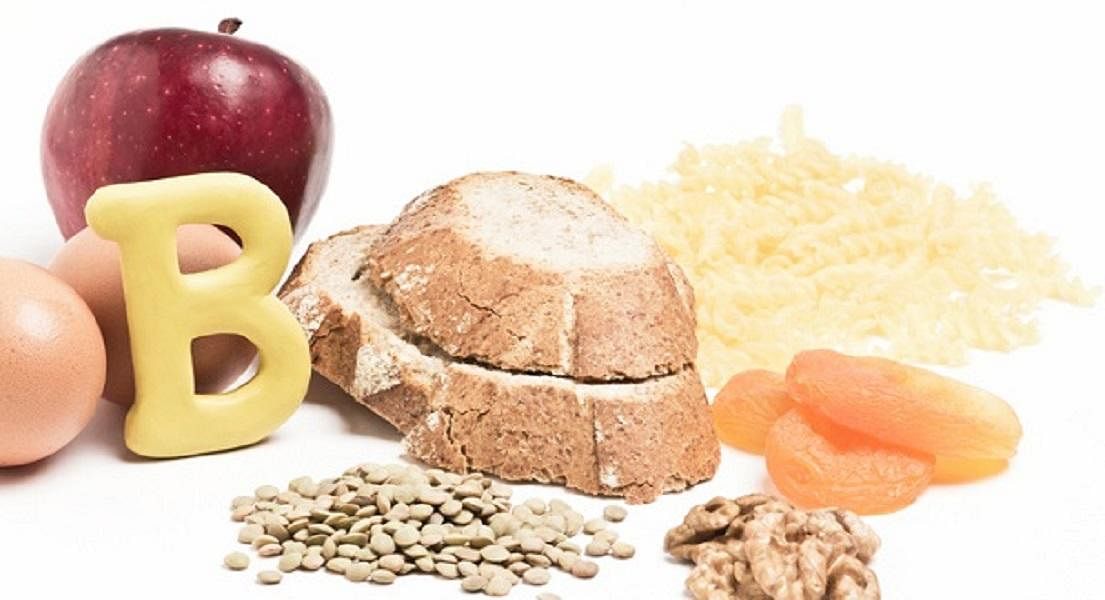Key Nutrients May Slow Cognitive Decline & Reduce Depression Risk
Why you can trust Nutri Advanced Every article on our site is researched thoroughly by our team of highly qualified nutritionists. Find out more about our editorial process.
A recent review, carried out by researchers at Ulster University has found that B vitamins and folate may be as effective as omega 3s and polyphenols in slowing down age-related cognitive decline and reducing depression risk in the elderly.
An estimated 46.8 million people are living with dementia worldwide – and this figure is expected to double in the next 20 years. Depression is also a leading cause of disability. There is clearly an urgent need to identify practical dietary and lifestyle factors that could be easily targeted and have the potential to promote better brain health in ageing.
Researchers found that whilst evidence from randomised controlled trials is inconsistent on the whole, the evidence for folate and vitamin B12 is more robust and supports their potential use in the longer term management of age related cognitive decline and depression in the elderly.
“If the findings of studies described in this review, which show promise in relation to B vitamins, omega 3 polyunsaturated fatty acids and polyphenols, are confirmed, a public health strategy to improve status of these key nutrients may help to achieve better cognitive and mental health in ageing.”
The team of researchers identified that these inconsistencies may have arisen from uncertain methodology and study design and have called for further research to be carried out in this area.
“It is clear that further well-designed RCTs are needed, especially those targeting participants with low B vitamin status as they are likely to benefit the most from increasing B vitamin concentrations to achieve better cognitive health in ageing.”
Effective nutrition strategies that could reduce the risk of cognitive and mental disorders and improve quality of life in our ageing population are urgently needed. This review highlights the crucial role that B vitamins, folate, omega 3s and polyphenols have to play in significantly reducing the burden of declining cognitive function and improving quality of life right through into old age.
References:
Moore K, O’Shea M, Hughes, CF et al. Current evidence linking nutrition with brain health in ageing. Nutrition Bulletin. Published online ahead of print: DOI: 10.1111/nbu.12250
This website and its content is copyright of Nutri Advanced ©. All rights reserved. See our terms & conditions for more detail.
Nutri Advanced has a thorough research process and for any references included, each source is scrutinised beforehand. We aim to use the highest value source where possible, referencing peer-reviewed journals and official guidelines in the first instance before alternatives. You can learn more about how we ensure our content is accurate at time of publication on our editorial policy.
Most Popular Articles
-
7 Surprising Ways To Support Your Magnesium
If you are displaying signs of a magnesium deficiency, here are 7 ways to boost your magnesium levels that are easy to incorporate into your daily life. -
5 Best Vitamin C Supplements Picked By Our Experts
Learn more about the different types of vitamin C, the different benefits you get from different types, and what you get for spending more on a good supplement. -
Top 5 Vitamins For Energy And Tiredness Picked By Our Experts
The 5 best and most important vitamins for energy & tiredness including B vitamin food sources & best supplement forms for energy. -
Benefits of Myo-Inositol for Polycystic Ovary Syndrome (PCOS)
In this research review article, we take a closer look at a lesser-known natural compound called myo-inositol that has been found to have significant potential to improve many of the prevalent features of PCOS. -
Top 10 Reasons to Give Your Kids Omega-3
Read the top 10 reasons that kids should have plenty of Omega-3- an essential fatty acid- including for depression, brain function, sleep & reading/maths skills.












